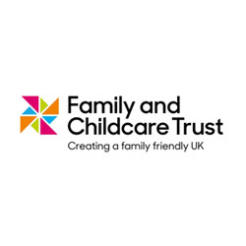In the first of a new regular feature civilsociety.co.uk gets the key facts and figures on rebrands in the charity sector. Today, we quiz the Family and Childcare Trust.
What triggered the rebrand?
A merger and a new charity name. The Family and Childcare Trust was created from a merger of the Family and Parenting Institute and the Daycare Trust charities at the beginning of 2013, and together the new organisation brings over 40 years of experience in campaigning and research.
What is the primary purpose of the rebrand?
To communicate the newly-merged organisation and to demonstrate the charity’s work and values: intelligent and pioneering, while at the same time approachable and grounded in the realities of family life.
How much did it cost?
The total project budget was £15,000 which included the development of the new visual identity, corporate brochure, event and support materials, a website holding page and a new research report.
How have you communicated with staff on it?
Staff and trustees have been involved in the development of the strategy and brand along the way at various stages including voting on the preferred option and inputting to improvements. A separate brand guidelines document was created for staff and trustees to offer brand support in a fun and engaging way.
How have you communicated with supporters on it?
A select group of stakeholders were interviewed about the options for a new name and the new brand straplines. A launch event for the new brand had 250 guests across the charity sector, policymakers, businesses, and family service providers such as nursery owners. A stakeholder letter has been sent more widely across our key audiences.
How will you develop the new brand going forward?
The next phase is to continue the development of materials such as letter templates and then to begin work on the charity website, the brand architecture including the development of more public-facing campaign identities and revisiting other existing sub-brands within our work.
How long did the process take?
Colourful Design Strategy Ltd were appointed at the start of May 2013 following a tendering exercise and the launch event took place on the 16 July 2013. Colourful Design Strategy Ltd is a new consultancy founded by brand consultant Emily Penny, with husband Stuart Penny, who leads on service design and user experience. The pair work in collaboration with their network of design specialists. The project has been led by Emily Penny, working with associate art director Phillip Southgate.
Who managed the rebrand? Agency/in-house and if the latter, which team?
The re-brand was managed by the director of policy, research and communications with support from a freelance communications consultant.
How does the new brand differ from the old?
The brand is more modern, more flexible, and more approachable than previous brands of the two charities merging. It combines gravitas and charm in an identity that can work across different channels, audiences and initiatives – directly to families, to policymakers and to businesses and potential funders. The brand aims to stand out in the sector as dynamic and modern. The central motif in the visual identity is a graphic pin-wheel which was selected because it is a positive symbol of childhood. The shape is used to represent diverse family structures, and provides the starting point for a geometric visual language which is toned up or down to suit either community or policy audiences.
Commenting on the brand identity, Anand Shukla, chief executive of the Family and Childcare Trust said: “Colourful recognised that we wanted a brand identity that would become synonymous with an organisation that truly understands the pressures of family life; that is passionate about campaigning for change; and that does everything it can to help families thrive. Colourful represented excellent value for money, and delivered a design that people – whether they are policy makers, childcare providers or parents –will come to recognise as the Family and Childcare Trust. “
Old brands | New brand |
 |  |









